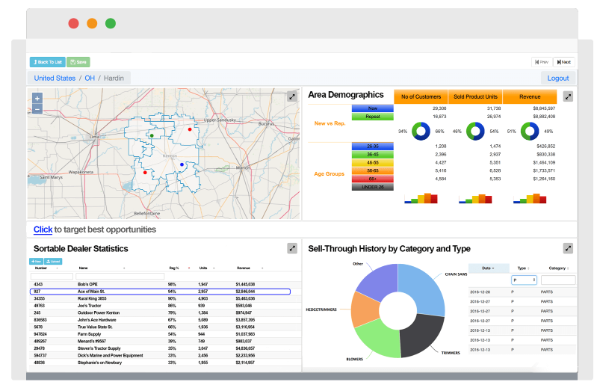How a CRM Enables You to Sell Smarter and Faster
by Black Ink Team

You can say CRM is like a Swiss Army knife for marketers - one tool which accomplishes many tasks. It can be used to calculate the success rate of individual ad campaigns, generate targeted lists for outreach programs, or even measure the validity of your marketing strategy as a whole. The only limiting factor for using software to increase sales is your imagination.
But you might be thinking: Why would I pay for extra functionality when I won’t need it? The truth is, however, the more you use an advanced CRM the more software capabilities will become indispensable to your organization. For example, one crucial part of effective marketing is being able to pull detailed lists of customers based on several factors. Without a capable platform, it could take weeks to discover which exact customers have ‘bought product x but not product y and seem interested in product z,’ etc.
Another great upside to implementing a customer relationship management solution is that managers are given tools to monitor and mobilize their team better. Notifications are especially useful in this area - individual sales reps can be alerted when customers they have interacted with have scheduled service appointments, managers can be told when team members are falling behind on their quotas, and milestones in dealer performance can be automatically announced to improve morale. Also, by logging hours spent in meetings and on the phone, managers can use CRM to assess how well their salespeople are managing their schedules. and based on their findings improve training sessions and match sales reps with leads who they are most likely to sell to.
In addition to increasing your team's toolkit through new technological capabilities, a good CRM platform also sharpens the blades by automating daily, routine tasks. Reports on key performance indicators can be made instantly, duplicate records in product registration databases can be removed immediately, and prospects can be assigned to individual sales representatives based on their location. The fewer mundane tasks a sales manager must do, the more time they have to focus on the big picture.
To illustrate one area where CRM really makes things easier, here’s how the impact of advertising can be effortlessly tracked: For every customer that gets entered into a CRM database, a unique identifier can be added which tells you where they came from. This means that, simply by using filters, you can see which advertising strategies are working better than others. And, as long as your CRM automatically updates data into a standard format, digital advertising is just as easy to integrate into your analysis as traditional advertising channels.
You can even use CRM analysis to fine-tune your loyalty programs – for example, you can use an A/B test to decide whether a discount or a loyalty points program is the way to go. Two dealers undergo a test trial, where one gives their customers discounts based on the products they buy and the other gives them loyalty points. After a certain period of time, the sales performance of both dealers can be compared.
To get the most out of implementing a CRM you should choose a solution that is tailored to a) your industry and b) your distribution model. This ensures that the software you choose will be able to help you ‘out of the box’ - that is, ready for your use case nearly immediately, without spending months of setup and customization time with a one-size-fits-all model. For example, say you are a manufacturer who just launched a new product, and you wanted to see which of your distributors and dealers are placing the most orders. With a CRM that is structured around your specific distribution network, it is possible to compare product sales across different variables such as territory, the length of your relationship, and more. This lets you hone-in on trends regarding your distribution partners (instead of your end users).
In short, CRMs let you do new things. They streamline streamline routine things you already do, they let you quickly analyze and optimize your marketing strategy, and the RIGHT one (i.e., us) will be tailor-made for your use case to do all that quickly.
